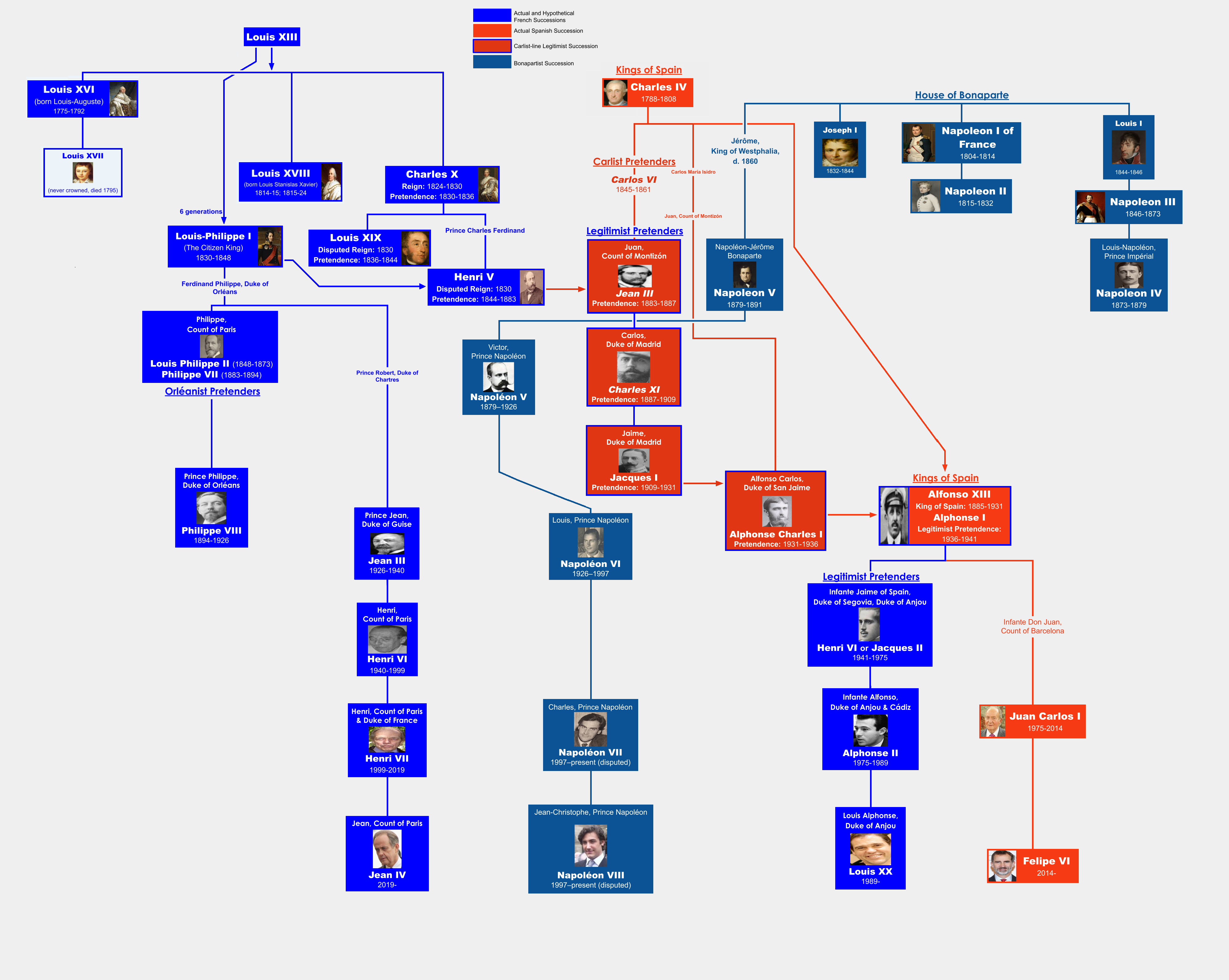HOME | DD
 BenjiSkyler — Alternative French Successions
BenjiSkyler — Alternative French Successions

#chart #familytree #contemporarykingsandqueens #alternatesuccession #house_of_bourbon #royal_pretenders #house_of_orleans #house_of_bonaparte #alternatehistory #diagram #europeanhistory #france #history
Published: 2023-02-20 23:21:49 +0000 UTC; Views: 1466; Favourites: 6; Downloads: 8
Redirect to original
Description
Succession to the now defunct French throne is now divided among three different lines of royal descent. Officially, Charles X was the last Bourbon King of France until he was overthrown in the 1830 July Revolution. He was then succeeded by a distant cousin of the Orleans branch. The continued succession in each case is based on agnatic succession (male-only, patrilineal succession).Following the July Revolution, Legitimists had largely withdrawn from the political scene while continuing to regard Charles and his never crowned successors as the legitimate kings of France. The Legitimists, however, did become more prominent after the 1848 overthrow of Louis-Philippe I, backing the Count of Chambord as Henri V. A merger between the Legitimist and Orleanist parties was in the works to effect a restoration of the monarchy. Several sons of Louis-Philippe did support Henri, but the two parties again diverged in 1850. Following the dissolution of the Second Empire in 1871, the Orleanists (including the Orleanist claimant himself) backed Chambord as king. For these reasons, Henri de Chambord is considered both a Legitimist and Orleanist Pretender.
After Henri's death in 1883, the Legimists and Orleanists became divided on whether the Treaty of Utretch was still in force. Following victory in the War of Spanish Succession, Philip V of Spain renounced his claim to the French throne and those of his descendants. While the Orleanists have since supported descendants of Louis-Philippe I, the Legitimists have supported the Spanish Bourbon line, starting with the Carlist Pretenders . This last remnant of Legitimism, known as the Blancs d'Espagne, regarded the former Spanish king Alfonso XIII as king of France. Though Alfonso's eldest son had repudiated himself and his descendants from Spanish succession, they have still been part of the Legitimist French succession.
Bonapartism has also emerged a counter-revolutionary ideology, following the end of the First Empire in 1814. Descendants of Napoleon I Bonaparte's brothers have held the honorific Prince Napoleon. Though Bonapartism as a political party has long since dissolved, Bonapartist can still refer to advocates of centralized authoritarian state.























